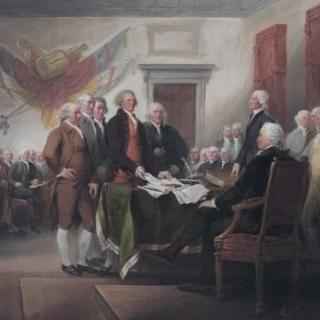It appears possible that since November 2006, no Wisconsin statewide election has been conducted in full compliance with Wisconsin law according to public records sent to the Columbus Free Press by the Wisconsin Elections Commission.
Most of the election administration authorities in Wisconsin use an electronic voting system (“EVS”) to count the ballots.
Since 2006, any EVS used to count votes in Wisconsin had to be certified for use by the Wisconsin Elections Commission or its predecessors. Within 90 days after approval of a given EVS, the EVS manufacturer must place certain software components in escrow with the commission. Within 10 days after any change in the software components, the changed software components must be placed in escrow with the commission.
There are two main types of software in an EVS.
First, there is the software in the EVS when the software is first installed and upgrades to such software.
Second, there are ballot definition files (BDF) which determine how the votes (the marks a voter places on a ballot) will be counted for each candidate. The ballot definition files are produced after the contents of the ballot are determined which happens (for a general election) after the results are certified for the primary election in which the candidates for the general election are nominated.
According to the public records (a Feb. 23, 2021 e-mail and a Nov. 18, 2021 e-mail with an attached spreadsheet) sent by the commission in response to a public records request from the Columbus Free Press, the commission has never placed either the software first installed in the machines or the ballot definition files in escrow with the commission.
In case of a recount, the commission is required by law to give immediate access to the software components to the candidates who are parties to the recount and their designees as soon as they agree in writing to maintain the confidentiality of any proprietary information in the software components to which they are given access.
In 2016, presidential candidate Jill Stein was a party to a Wisconsin recount. In 2020, after several years of litigation, a court decided the final details of the procedure by which Dr. Stein’s designees could have access to the software components from the EVS used in the November 2016 election. By the time the court decided the issue, another party to the recount had been President of the United States of America for more than three years.
It remains to be seen what the commission would do about meeting its statutory obligation to provide access to the software components to parties to any recount in 2022 or later years.
The statute which requires that the software be in escrow with the commission is Wis. Stat. section 5.905(2).
Wis.Stat. section 5.905(2) provides in pertinent part that: “The commission shall determine which software components of an electronic voting system it considers to be necessary to enable review and verification of the accuracy of the automatic tabulating equipment used to record and tally votes cast with the system. The commission shall require each vendor of an electronic voting system that is approved under s. 5.91to place those software components in escrow with the commission within 90 days of the date of approval of the system and within 10 days of the date of any subsequent change in the components.”
The statute which requires the commission to grant candidates involved in a recount access to the software components is Wis. Stat. Section 5.905(4).
Wis. Stat. section 5.905(4) provides in pertinent part that: “If a valid petition for a recount is filed under s. 9.01 in an election at which an electronic voting system was used to record and tally the votes cast, each party to the recount may designate one or more persons who are authorized to receive access to the software components that were used to record and tally the votes in the election. The commission shall grant access to the software components to each designated person if, before receiving access, the person enters into a written agreement with the commission that obligates the person to exercise the highest degree of reasonable care to maintain the confidentiality of all proprietary information to which the person is provided access, unless otherwise permitted in a contract entered into under sub. (5).”
On Oct. 12, 2020, the Columbus Free Press filed a public records request with the commission. The request sought l) the public records showing the date software components were first placed in escrow with the commission for each EVS and 2) the public records showing the software components were in escrow with the commission on Oct. 12, 2020.
In the Oct. 12, 2020 public records request, the term “software component” was defined as it is defined in Wis. Stat. section 5.905(1) which provides in full that: “In this section, “software component” includes vote-counting source code, table structures, modules, program narratives and other human-readable computer instructions used to count votes with an electronic voting system.”
In the Oct. 12, 2020 public records request, the definition of the term “electronic voting system” followed the statutory definition in Wis. Stat. section 5.02(4m).
The Oct. 12, 2020 public records request stated that: “This request only seeks public records related to electronic voting systems and software components of such systems approved for use by the Wisconsin Elections Commission (the Wisconsin Elections Commission may be referred to in this document as “WEC”) in the November 3, 2020 elections.”
The Oct. 12, 2020 public records request sought verbatim:
“1. All records showing (by manufacturer and by system) the date the software components (used to record and tally votes cast in any electronic voting system used to record and tally votes cast which system was approved for use in Wisconsin by the Wisconsin Elections Commission (WEC) for the Nov. 3, 2020 election) were first placed in escrow with the WEC. (This request does not seek records of software components placed in escrow with Escrow Tech International, Inc. or any private company or entity other than the WEC.)
2. All records showing (by manufacturer and by system) that as of October 12, 2020, the software components (used to record and tally votes cast in any electronic voting system used to record and tally votes cast which system was approved for use by the Wisconsin Elections Commission (WEC) for the Nov. 3, 2020 election) were in escrow with the WEC. (This request does not seek records of software components placed in escrow with Escrow Tech International, Inc. or any private company or any entity other than the WEC.)”
On Feb. 23, 2021, commission spokesperson Reid Magney wrote to the Columbus Free Press via email (a public record) in response to the Oct. 12, 2020 public records request and confirmed the commission never had the software components in escrow with the commission. Commission spokesperson Magney wrote on Feb. 23, 2021 in full as follows (underlining in original):
“Thank you for your reminder email. I must apologize, as I initially misread your request and thought it was more complicated than it is.”
“I had to take out some of the parenthetical terms in your request to understand exactly what you were requesting. Here’s what I believe you are requesting:”
“1. All records showing (by manufacturer and by system) the date the software components were first placed in escrow with the WEC.”
“2. All records showing (by manufacturer and by system) that as of October 12, 2020, the software components were in escrow with the WEC.”
“I think you may have misunderstood how escrow works. Voting equipment manufacturers do not place software in escrow with the WEC. WEC never receives voting system software from the manufacturers. They place software in escrow directly with the WEC’s escrow company. If it becomes necessary, WEC is able to access the software from the escrow company.”
“We are now working on getting the information you requested from the escrow company, and we will fulfill your request as soon as possible.”
On Nov. 18, 2021, WEC Staff Attorney Brandon Hunzicker wrote to the Columbus Free Press via email which said in part that:
“This e-mail is in response to your public records request of October 12, 2020. Attached is an Excel spreadsheet that fulfills your request.”
"A copy of the Excel spreadsheet sent on November 18, 2021 is in the Associated Files section following the article."
The information shown in the Excel spreadsheet and the February 23, 2021 e-mail indicate that the commission has never had the software components or the ballot definition files in escrow with the commission (as opposed to a private escrow company).
In addition to the software components which exist when an EVS is certified, a ballot definition file is needed for each election to tell the EVS how to count, for example, the marks placed on a paper ballot to designate the voter’s votes.
The ballot definition files are coded after the number of candidates to appear on the ballot is determined after any necessary primary.
The public record sent by the WEC on November 18, 2021 and the February 23, 2021 e-mail also indicate that the commission did not have the ballot definition files for the November general election in escrow with the commission or a private escrow company in 2008, 2010, 2012, 2016, 2018, or 2020.
For 2008, 2010, 2012, 2016, and 2018, there are no entries for Date of Escrow Deposit listed in the spreadsheet sent on Nov. 18, 2021 which indicates no software components were deposited with the commission or a private escrow company for the first time in any of these years.
In 2020, the only Date of Escrow Deposit listed in the spreadsheet was January 17, 2020 which was well before the ballot definition files could be coded after the primary held in August to determine the complete list of candidates for the November general election.
------------------------------------
Assistance with this article was provided by Peter Peckarsky who is a candidate for the Democratic nomination for a U.S. Senate seat representing Wisconsin and who assisted the 2020 recount effort of Dr. Jill Stein.



